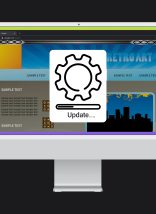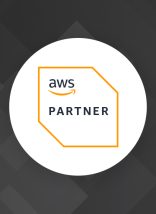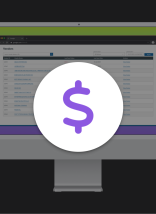
A great session of “Technical SEO” tonight at Phil’s SEO Meetup was mind bending and fun. Fun if you like twisting your mind into a pretzel which I do, but many were lost between Content Delivery Networks, Mod Rewrites and Canonical URLs. This post starts at the beginning focusing on 5 SEO BASICS every marketer MUST know since to NOT KNOW endangers everything including your ability to hire help.
Must Know SEO #1 = Page Titles
Your page titles are always the highest words on your rendered web pages. You can also see page titles in code. In FireFox, go to Tools > Web Developer > Page Source. Here is how your page title will look:
<title>SEO, LinkedIn and The Real You ScentTrail Marketing</title>
Page titles should be keyword rich and unique.
WordPress and other blog software provides a place for YOU to create a title. Your WordPress blog may have the ability to vary your titles. Sometimes you want to feed the search engine spider one title and customers another, but be careful to be sure this passive rewrite of your title is consistent with the page’s content. Titles that don’t speak the same language as the page get you in trouble with Google.
I’m writing this post after eating a great Cheeseburger at the Zaxy’s Restaurant on Glenwood. Here is the ZaxyRestaurant.com title:
<title>ZakyRestaurant.com: Homepage</title>
Anything in a tittle is a word you want the page to rank for, so keywords are your friends.
There are 5 MAJOR mistakes in the current ZakyRestaurant.com title including:
- No keywords such as “Raleigh”, “Mediterranean restaurant”, “Glenwood Ave”, “Gyro”, “Lebanese” or “Hummus”.
- Zaky is concatenated into “restaurant” (no space) signalling the two are one word to Google except they aren’t. People will search Zaxy Raleigh or Zaxy Restaurant not ZaxyRestaurant.
- Never put a period inside of a tag since periods can looks like code.
- Never use a : inside of a tag, use a | so the punctuation doesn’t look like code.
- Never put “homepage” or a keyword so general it is meaningless in a title.
Here are Zaky’s description and keyword tags:
<meta name=”description” content=”Zaky is a downtown Raleigh Mediterranean restaurant in a convenient Glenwood location.”>
<meta name=”keywords” content=”Mediterranean, Raleigh, Restaurant, Glenwood, Food, Lebanese, Pita, Gyro, Hummous”>
These are not as terrible as the tittle. Too bad Google doesn’t even glance at these tags anymore. These tags tell me the person who created the page knows a little SEO, but not nearly enough.
TEST your title simply by making sure ANY word inside the tag (showing on the very top of the page) is an important KEYWORD you want your website to be found for (to rank for).
PS. Another quick page title note. Google assumes position = value. Your most important and defining keywords should be far left and count down toward things you should win anyway (like your name). Use of | doesn’t interfere with the spider’s “read” and creates better usability. Titles are “spider food” mostly, but the most important spider food on the page so create titles carefully, with research and don’t exceed Google’s 69 character (spaces count as characters) limit.
SEO Must Know #2 – Consistency
Your titles, page content, image alt text (the keywords attached to images to explain what they are) and navigation should tell a consistent story. This is why it is so damaging to use a keyword like “homepage” in a title.
Zaky won’t have homepage anywhere in the page’s content so the keyword will stand out like a sore thumb and look spammy to Google. You and I know the designer who created the page didn’t know better, but ignorance of SEO guidelines is NO EXCUSE. Google is clear. Knowing SEO’s “laws” stated and unstated is you and your designer’s /programmer’s job not Google’s. Doing a few hours of reading on SEO is a good idea.
SEO Must Know #3 – Unique & Accurate
The good news for ZakyRestaurant.com is at least their designer created unique page titles. Many templated sites simply copy the same title on every page. Make sure your have unique titles and that each page’s titles is accurate to the content on the page.
SEO Must Know #4 – Junk In The HEAD
Google’s bot starts counting the moment it enters. It works its way down through the head content, the content that controls important tags like your <title>. Many designers like fancy roll overs. They jam the controlling code in your website’s Head. Don’t let that happen. Keep your Head CLEAN.
If you want fancy rollovers there are ways to code them with less spammy code in the head. If you see lines and lines of code in your <head> you have a problem.
SEO Must Know #5 – First Rule = Do No Harm
If your website exists then Google knows it. This means Google has expectations for how your website will ACT (your update frequency, your link add frequency, your inbound link gain frequency, etc. to infinity).
Here is a good question to ask any SEO. Ask any potential SEO how they would change your page title to rank for a keyword you want. This is a trick question since I don’t operate unless I know WHAT is WHERE. The right answer is NOTHING until research is created.
Here are other danger signals. If you here hear or see any of these RUN:
* I can get your website ranked #1 on X keyword in Y time (no they can’t).
* I guarantee your will rank (VERY dangerous for many reasons, RUN).
* If you ask about the Google float and they stammer or make something unreal up RUN.
The “Google float” is Google’s increasingly individual search results. Social signals, your past browsing history and even your friends LIKES ans SHARES mean you and I see different results even if we do the same search at the same time. The only way to benchmark and understand SEO progress is via analytics. Any SEO who can’t explain the float is dangerous and you should RUN.
Hope these 5 tips help you avoid the Zaky problem where a little knowledge proved to be a real problem. If you are a Zaky make sure you ask for a simple WordPress blog YOU can maintain. That way if some goofystupid person make mistakes you can easily fix them AND you have the added benefit of being able to easily add content. Adding content is KEY for any website these days. Static 4 page websites don’t rank, so get a blog YOU can maintain.
Don’t worry. You can and will make mistakes, but there is only one Internet marketing mistake that is unrecoverable – doing nothing and you are already out there trying so keep it up and avoid these simple mistakes even if your designer makes them.









